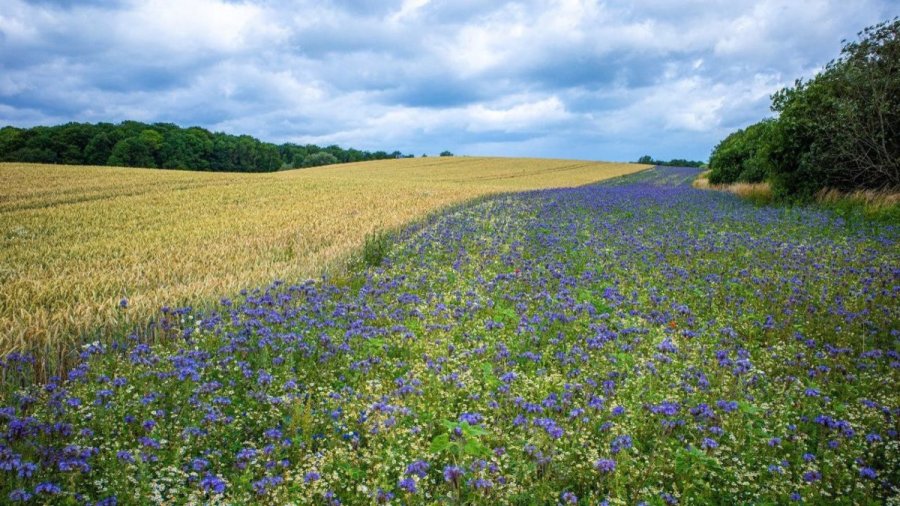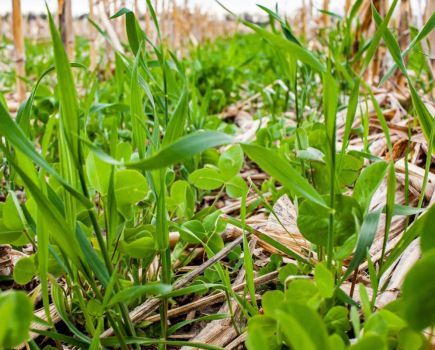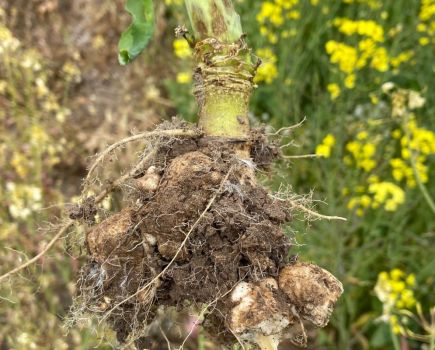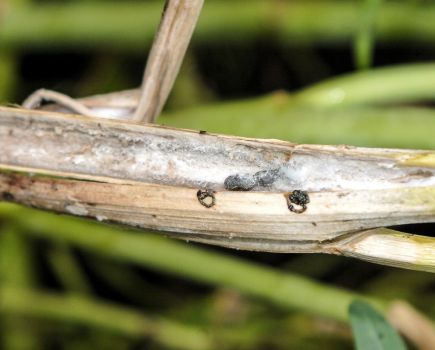Maintaining food production while farming in a more sustainable way is the challenge currently facing all farmers, both economically and for the sake of the planet. Over the next five years a new field experiment, Project Fortress, could be a guiding light. CPM reports.
Significant policy change since Brexit now sets our framework.
By Lucy de la Pasture
There’s hardly a business in the world that’s not talking about sustainability. For BASF, it’s been one of the company’s core strategies for a long time, explains Rob Gladwin, head of technical management at BASF.
“Significant policy change since Brexit now sets our framework – with the 30 by 30 initiative (30% of biodiversity to be protected by 2030); ELMs; Net Zero and the National Action Plan (NAP), which aims to minimise the risks from pesticides,” he explains.
Rob says these present sizeable challenges as well as significant opportunities. “At the moment I’m struggling to see the Brexit benefits set out pre-Brexit due to the lack of political vision and leadership. We’re also experiencing the hidden impact of Brexit which is friction to trade.”
BASF are advocating for farming through dialogue with stakeholders and policy makers, adds Rob. “Although there’s also a greening of government, there appears to be a very poor political understanding of the concept of IPM,” he adds.
Guided by the 2030 sustainability commitments, BASF have developed four pillars to help deliver them. These are its Sustainable Solutions, Digital Farming, Climate Smart Farming and Smart Stewardship, he explains.
While the theory sounds good, putting them into practice isn’t something that can necessarily be easily transferred from a piece of paper. So practical routes to a more sustainable future are being put to the test in a field in Northamptonshire as part of a five-year experiment at Andrew and William Pitt’s farm, The Grange. The brothers have been working together with BASF since 2009 as they try and find the right balance between food production and the environment, explains Mike Green, BASF agricultural sustainability manager.
‘Fortress field’, like many fields in the UK, had reached a yield plateau. The question is whether anything can be done to help improve productivity while delivering increased biodiversity, explains Mike. In an effort to explore the possibilities Project Fortress was born in 2021.
Conveniently, Fortress field is slightly unusual in that it has a consistent soil type from one side to the other, explains independent soil scientist Prof Jenni Dungait, making it a good site for a comparative trial of this type.
“The soil is a fine-textured clay overlying chalk which is prone to waterlogging and cracking. It’s south-west facing and has been in no-till for six years and is covered all of the time but still needs to be managed better because of the fact it becomes waterlogged and is prone to run-off due to its slope to the north-west,” she explains.
The focus of Project Fortress is to deliver all ecosystem services which are preserving good food production and improving biodiversity, not just above ground but below ground.
The first thing Jenni did was to dig holes to look at the soil profile. She found nice, aggregated structures with roots, worm casts and burrows in the top 15cm. Further down the profile it was a different story with a change in texture to a more dense, compacted soil. The soil aggregates became more angular and horizontal cracks were evident through the deeper profile (+15cm).
Once the baseline soil characteristics were identified, different management approaches were chosen to be trialled against nearby comparison plots. One of these is a nearby piece of deciduous native woodland, which has been largely unmanaged in the sixty years since it was established, and the other a neighbouring arable field which is under ‘business as usual’ management. Soil bulk density measurements were carried out in Fortress and the comparison sites to get a measure of soil compaction. Unsurprisingly the woodland soil was much less dense than the arable soils, more open and free draining, explains Jenni.
Four different management approaches are being looked at in Fortress field to ‘sort out the soil engine’, continues Mike, but first the drainage had to be addressed.
“The field was drained in the mid-1980s, but they aren’t working well as evidenced by sediment in the outflows. We used a low disturbance Grange subsoiler at 20cm depth and the drains started running in a very strong way, with sediment to start and then they ran clean.”
The treatments being trialled are a four-year herbal ley which will be grazed by sheep; a one-year ‘supercharger’ cover crop to exploit all the fractures in the soil after drainage correction; arable cropping using BASF ‘solutions’ – using product portfolio and digital technologies; and a two-year ‘supercharger’ – to understand whether a supercharger cover crop can deliver long term soil and yield benefits
“All the treatments will be divided by ‘agriflorestry’ strips with an unmown grass stripe through its middle, which will effectively put meadows back into the arable landscape. This was William’s idea with the intention to give biodiversity a place to feed, breed and over-winter,” adds Mike.
The plan over the next five years is to continue measurements of soil organic carbon, bulk density and soil health/water quality with Jenni; to look at climate efficiency/smart farming and the performance of BASF solutions with Andy Beadle, head of global sustainability for Agricultural Solutions; to assess the economics with the help of farm business consultant Paul Pickford, and to monitor beneficial insects; pollinators and wider biodiversity with the help of John Holland of the Game and Wildlife Conservation Trust and Marek Nowakowski of the Wildlife Farming Company.
Within a separate R&D area a crop of winter wheat is already in the ground. The aim is to look at early drilling to see if it can deliver a climate and yield benefit. RGT Wolverine was direct drilled on 27 August with a companion crop and will be compared with Extase direct-drilled on 10 October. The early drilled plots were grazed by sheep in late-December to reduce mildew and above ground biomass.
New BASF Sustainability Awards
Sustainability means different things to different growers. Acknowledging this, BASF is inviting farmers to explain what it means on their farm and enter into a competition for its new Sustainability Award.
In partnership with Farm 491 and the Institute for Agricultural Management, BASF is looking to celebrate the great work that farmers are already doing and share these stories for others to learn from.
Many UK growers are already making strides in turning around biodiversity decline and farming in a better balance with nature. BASF aim to celebrate the positive things that are already happening, so that others can learn from them and even improve them in the future, says BASF’s Polly Lawman.
Growers are being encouraged to share how they have made progress to improve their sustainability, both from an economic, social and environmental perspective. “Of course, farmers must look after the physical environment, but ensuring the farm makes a profit and has people to work on it are equally important aspects of sustainability,” explains Polly.
Entries to the competition will be accepted until 13 May, at which point the panel of judges will review all applications. The winner will receive a commemorative plate, personalised for their own farm. In addition, the Institute of Agricultural Management will gift the winner with a ticket to the National Farm Management Conference. Farm 491 will also support the winner in reaching some of their further sustainability goals through access to their extensive ag-tech partners.
For more information about the competition and to enter, visit www.agricentre.basf.co.uk/en/Sustainability




